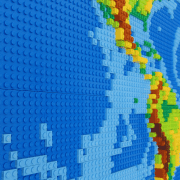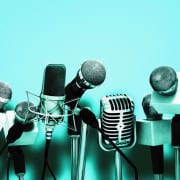|
Getting your Trinity Audio player ready...
|
By Peter Glover
First published on the Global Anti-corruption Blog
The immediate consequences of Covid-19 are visible and visceral for everybody, even as some feel the effects more than others. In addition to reshaping everyday life, Covid-19 will also transform global governance – including with respect to corruption and related issues. In this post I want to emphasise three ways that the Covid-19 pandemic will interact with corruption:
- First, corruption may hamper governments’ response to the crisis, and may also reveal the ways that corruption has already degraded the quality of service provision. Healthcare systems that have been sapped by corruption will be even more likely to lack the supplies, qualified care providers, and facilities they need to tackle spiking numbers of sick patients. In addition, corruption can reduce public trust in government, undermining important public health announcements. Oligarchs, made rich off the proceeds of corruption, can bribe their way out of quarantine or stockpile important medical supplies. Public outrage at such corruption can topple governments – both democratic and autocratic – in what is becoming an accelerating global trend.
- Second, corrupt governments and leaders will use Covid-19 as an excuse to increase their discretion and control over society. Governments around the world have declared states of emergency, suspended normal operating procedures, limited public oversight of government, authorised large spending packages, and accelerated procurement processes. And while some forms of increased discretion and control may be necessary to give governments the powers they need to respond quickly to the crisis, some governments will abuse the Covid-19 emergency as a pretext to erode transparency and accountability mechanisms, and with these mechanisms weakened there will be little to stop corrupt actors from stealing resources and diverting international aid funding. In Hungary, for example, new emergency powers have allowed Prime Minister Viktor Orbán to rule by decree for an indefinite period of time. And emergency powers and coercive tools adopted to address crises often persist after the crisis has passed – and this “ratchet effect” means that expanded opportunities for corruption may persist even after the immediate crisis has passed. Furthermore, critics of governments’ Covid-19 responses – including journalists and healthcare workers – have been detained, fined, or attacked in China, Tansania, Thailand, Cambodia, Venezuela, Bangladesh, Turkey, India, Azerbaijan, Zimbabwe, Somalia, Ethiopia, and Nigeria, among others. When space for independent criticism of governments closes, it creates room for corruption. This “ratchet effect” applied to procurement policies, general transparency, and concentrated discretion.
- Third, on a more positive note, Covid-19 has forced many governments to adopt a variety of creative and practical solutions to the challenges that arise when many government employees cannot go into work at their offices. Some governments are addressing this challenge through expanded and improved e-government platforms. These platforms have the collateral benefit of being more transparent, and thus making corruption more difficult. Civil society groups can take advantage of the “demonstration effect” of successful e-governance mechanisms during the crisis to advocate for broader adoption of such platforms more generally. If this effort succeeds, and if the new e-government platforms work well, citizens will not only benefit from more productive government operations, but also from more transparency and accountability.
At this early stage, it is unclear what the net impact of the Covid-19 pandemic will be on governance quality in the longer term. While corruption may undermine government responses to the crisis, and the crisis may erode institutional checks and give rise to new forms of corruption, the crisis may also be a catalyst for the adoption of new mechanisms that will help combat corruption through greater transparency and accountability. To increase the likelihood that the good effects outweigh the bad, pro-democracy and anticorruption advocates and activists have their work cut out for them.
Peter Glover is program officer for the Center for International Private Enterprise’s Anti-Corruption and Governance Center.








